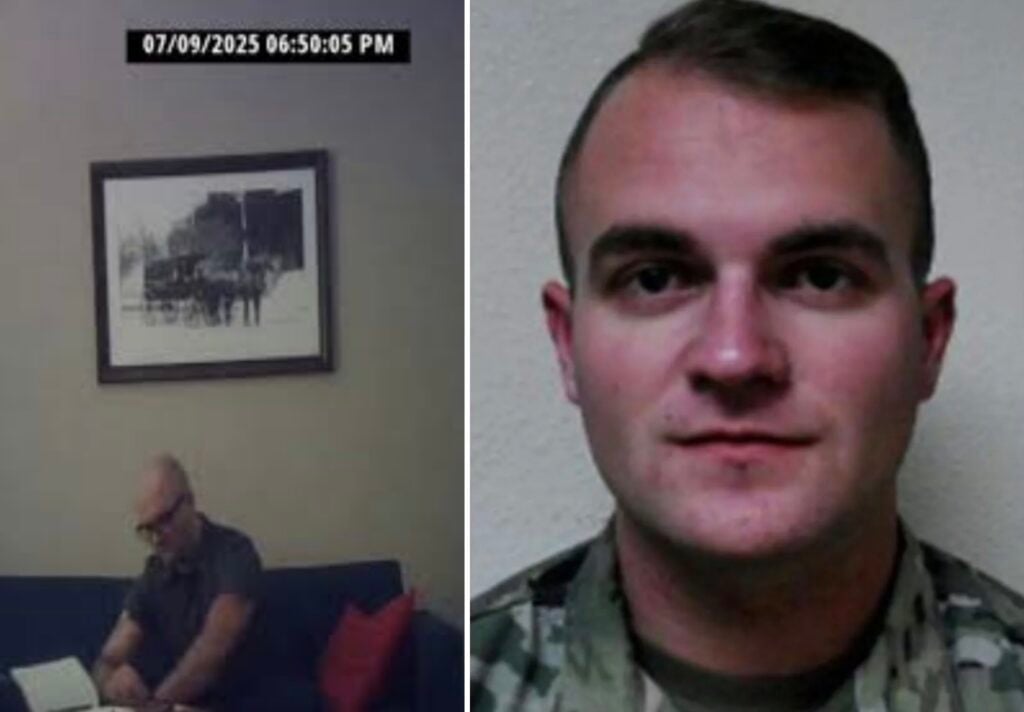An active-duty Army specialist at Fort Bliss is now sitting in federal custody after allegedly attempting to hand over classified U.S. military secrets to Russian government officials in exchange for citizenship and a safe escape.
According to unsealed court documents, Spc. Taylor Adam Lee, 22, is facing federal charges of attempted transmission of national defense information to a foreign adversary and attempted export of controlled technical data without a license. The FBI arrested Lee on August 6 in El Paso, Texas. He remains jailed without bond.
The Alleged Plot
Federal investigators say Lee’s plan kicked off back in May 2025, when he placed several calls to numbers tied to the Russian Embassy in Washington, D.C. That sparked the FBI’s attention, and soon an undercover agent posing as a Russian official reached out to him.
Lee allegedly jumped at the chance. In his messages, he told the agent he could provide classified details on armored operations, firsthand experience with the M1 Abrams tank, and weaknesses in U.S. systems. In return, he demanded Russian citizenship, a passport, and safe travel to Russia.
Lee wrote that he was willing to “assist wherever is deemed necessary” and even “continue cooperation there as I can explain weak points in vehicle systems.”
From Whistleblower to Would-Be Traitor
In his communications, Lee tried to justify his actions by claiming he had attempted to become a whistleblower. He accused the U.S. military of covering up human trafficking and criminal activities, saying other soldiers had “gone missing or ended up dead.” He claimed his life was in danger and that his desperation pushed him to seek protection from Russia.
But court records show Lee went beyond words. He sent the undercover agent screenshots of his Army Soldier Talent Profile, documents tied to his security clearance, and internal operations manuals for the M1A2 Abrams tank. Some of the documents carried classification markings.
The SD Card and the Hardware Grab
On July 9, Lee met with the undercover agent in El Paso. That meeting was video-recorded. During it, Lee allegedly handed over an SD card packed with documents—including operations manuals for Abrams tanks and Bradley Fighting Vehicles.

He bragged about being able to pull more files using his clearance and even offered to obtain a classified piece of hardware: the Joint Battle Command-Platform, a system that tracks U.S. combat vehicle locations worldwide.
Weeks later, Lee told the agent he’d gotten lucky when two damaged tanks were recovered. He claimed he secured the requested hardware, saying, “Yes everything is acquired. Including hard drive. Just lucky that I got it sooner. And no one knows I have them.”
On July 31, Lee stashed the sensitive hardware inside a black plastic footlocker at a storage unit in El Paso—unaware the unit was controlled by the FBI. He sent the agent a final message: “Mission accomplished.”
The Arrest
Days later, FBI agents swooped in with an arrest warrant. On August 6, 2025, they took Lee into custody. He made his initial federal court appearance that same day.
Lee, who held a Top Secret / Sensitive Compartmented Information clearance, now faces some of the most serious charges possible for a service member.
Federal Response
U.S. Attorney Justin R. Simmons of the Western District of Texas didn’t mince words:
“Our enemies, both foreign and domestic, should be aware that we diligently investigate and aggressively prosecute these cases.”
Army Counterintelligence Command and the FBI emphasized that insider threats are a real and ongoing danger, and that Lee’s case is a stark reminder of how vulnerable U.S. systems can be when trust is betrayed from within.
What’s Next
For now, Lee sits behind bars awaiting trial. Prosecutors will push to make an example out of him, while defense attorneys will likely argue about his claims of being a whistleblower.
But one thing’s for sure: if convicted, this young soldier won’t be seeing Russia anytime soon—except maybe on a prison television.
© 2025 The Salty Soldier. All rights reserved.
The content of this webpage may not be reproduced




